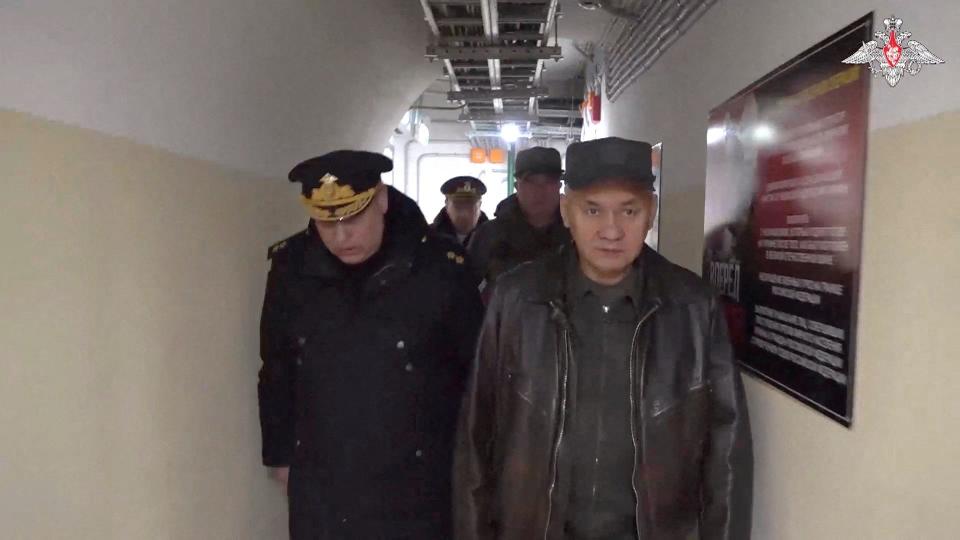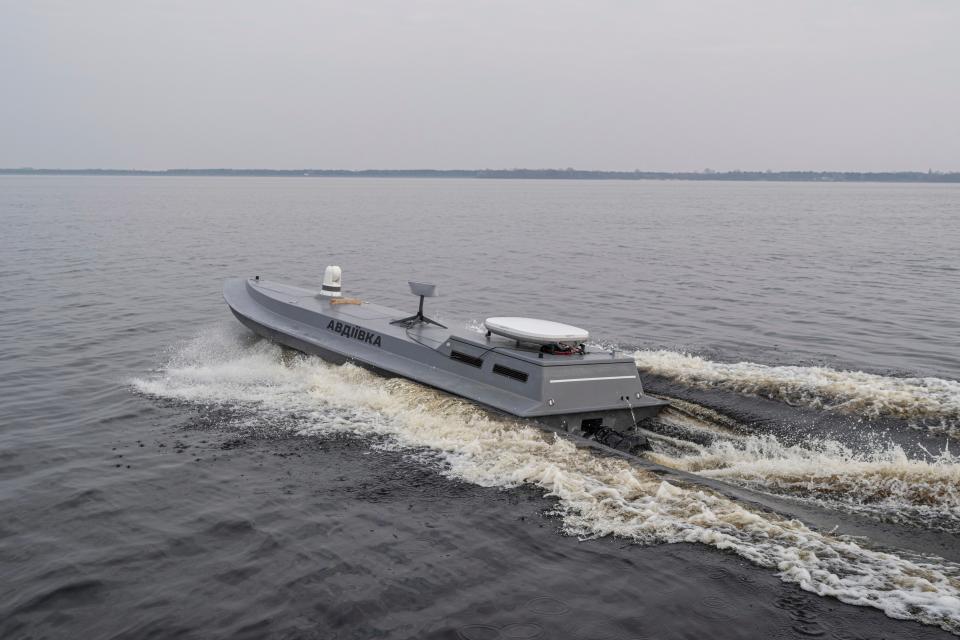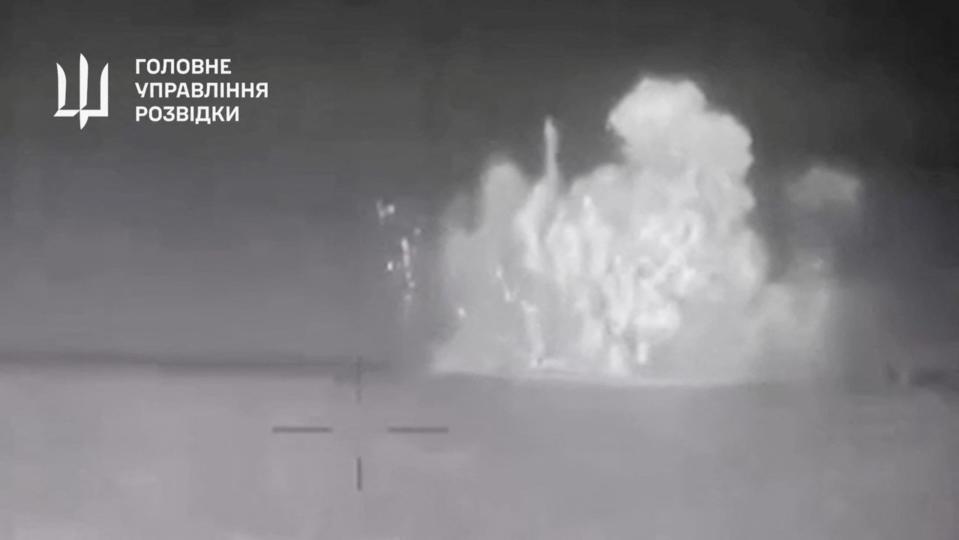Russia lost a third of its Black Sea Fleet warships before top brass decided to take Ukraine's naval drones more seriously
Ukraine has found repeated success in the Black Sea by using naval drones to hammer Russian ships.
As of last month, Russia had already lost a third of its Black Sea Fleet, officials said.
This has forced Moscow's top brass to look into better ways to protect its warships from drones.
It took losing a third of its Black Sea Fleet for Russia's military leadership to decide that it should take Ukraine's naval drones a bit more seriously than it has been.
Kyiv, which lacks a proper navy, has relied heavily on an arsenal of uncrewed surface vessels, or USVs, packed with explosives to damage and sink Russian warships in the Black Sea. Moscow has so far been unable to consistently defend against this asymmetrical style of warfare.
Amid these mounting losses, Russian Defense Minister Sergei Shoigu stepped in to announce a new set of protective measures for his naval assets.
Russia's defense ministry said Sunday that Shoigu visited the Black Sea Fleet's command post, located on the occupied Crimean peninsula, to discuss the Ukrainian drone attacks and how Moscow can better protect its warships and infrastructure.

During his visit, Shoigu said it is "necessary" for naval crews to train every day so they better prepare for drone attacks from the air and sea, according to a statement from Russia's defense ministry. He also ordered the installation of "large-caliber machine gun small arms systems," although it was not immediately clear where these would be placed or what specific types would be used.
British intelligence noted Shoigu's recent visit, saying it was ultimately prompted by the Ukrainian military's continued success in the Black Sea.
"With Ukraine continuing to seek out opportunities to strike at distance," Britain's defense ministry wrote in a Tuesday intelligence update, Russia "has been prompted to increase its efforts to preserve its fleet in the Black Sea."
The Russian navy, Britain added, "has highly likely resorted to limiting its operations to the eastern Black Sea as its losses mount, and its threat perceptions increase."

Analysts at the Institute for the Study of War, a Washington-based think tank, suggested that Shoigu may also use the outcome of his visit for personal gain or to shield himself from criticism.
"Shoigu's posturing to protect the BSF sets conditions for Shoigu to either take credit should the BSF become more effective at protecting itself against Ukrainian strikes or blame other commanders should the BSF fail in this effort," the analysts wrote in a Sunday assessment.
Ukraine introduced its naval drones in late 2022 and has since used these systems to batter the Black Sea Fleet, forcing some of it to relocate to mainland Russia and away from the vulnerable headquarters at Sevastopol. Through its attacks, Kyiv has managed to open up a maritime corridor in the region, which is crucial for its economy.
It's unclear if the new efforts announced by Shoigu this week will yield any significant results, especially if they don't include sufficiently capable weaponry or electronic warfare capabilities.

A general in the Security Service of Ukraine, or SBU, previously told Business Insider that Russia at one point had deployed machine gun crews on its warships in a bid to better protect its forces. Ukraine, likewise, has increased the capabilities of its naval drone boats.
But these efforts have essentially proven to be fruitless, as video footage has shown. Kyiv has managed to take out roughly a third of the Black Sea Fleet's vessels in the first two years of the full-scale war, officials revealed last month.
The Black Sea fight is one battlespace where the Ukrainians have found tremendous success over the past year amid shortcomings on the ground. Kyiv's forces failed to achieve a major breakthrough during their much-anticipated counteroffensive last summer, which paved the way for Russia to follow up with its renewed offensive.
Over the past few weeks, Russia has made some noteworthy territorial gains in eastern Ukraine as Kyiv faces dwindling firepower and uncertainty over the future of Western support, particularly from the US — its biggest provider of military aid.
Read the original article on Business Insider

 Yahoo News
Yahoo News 
